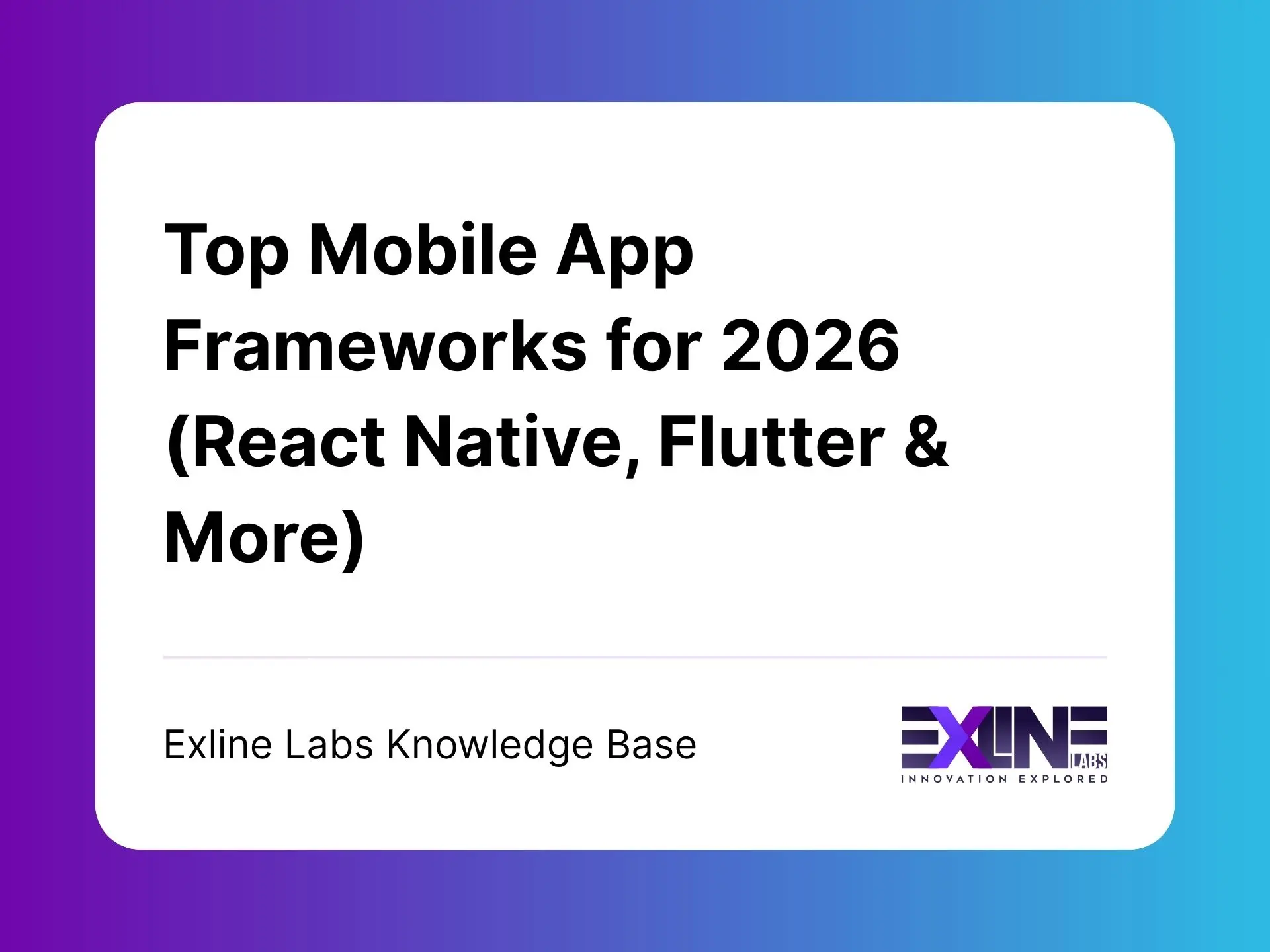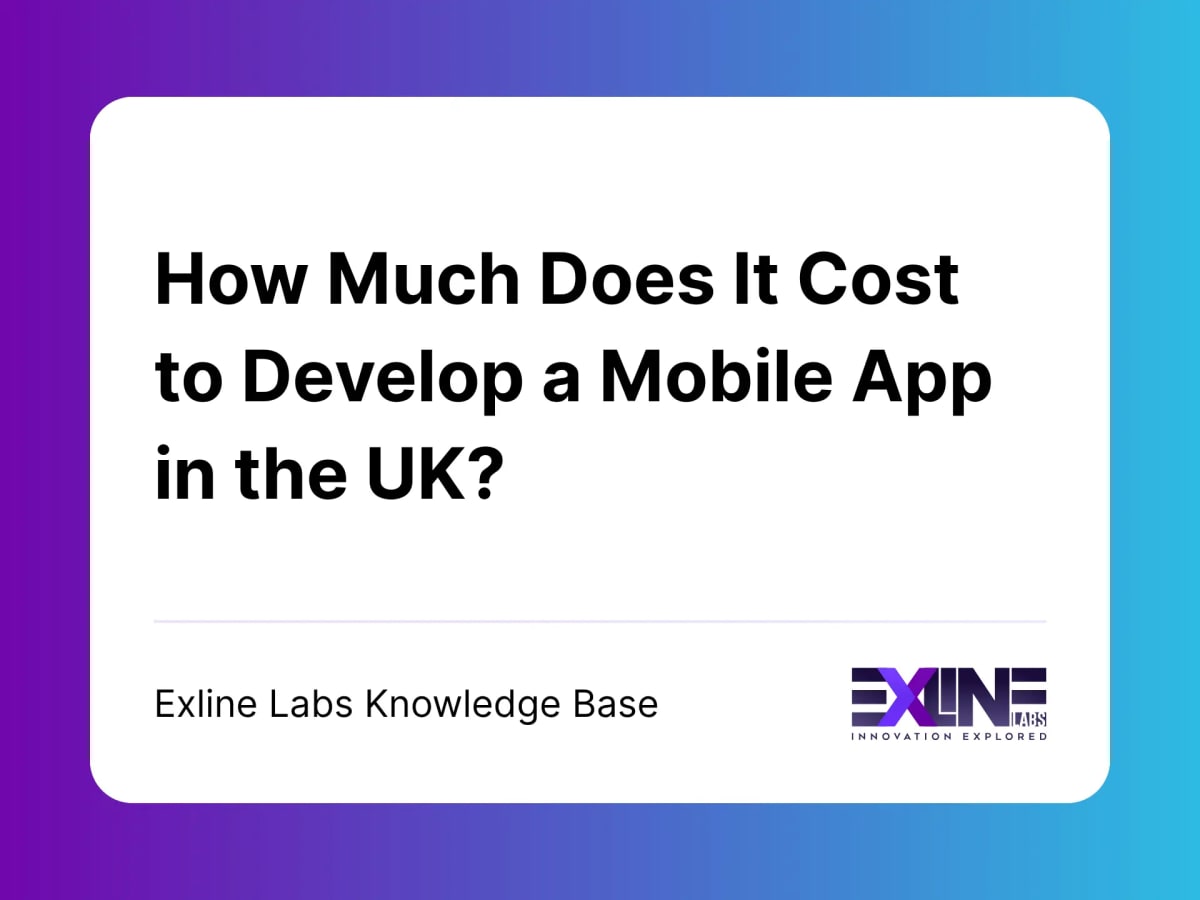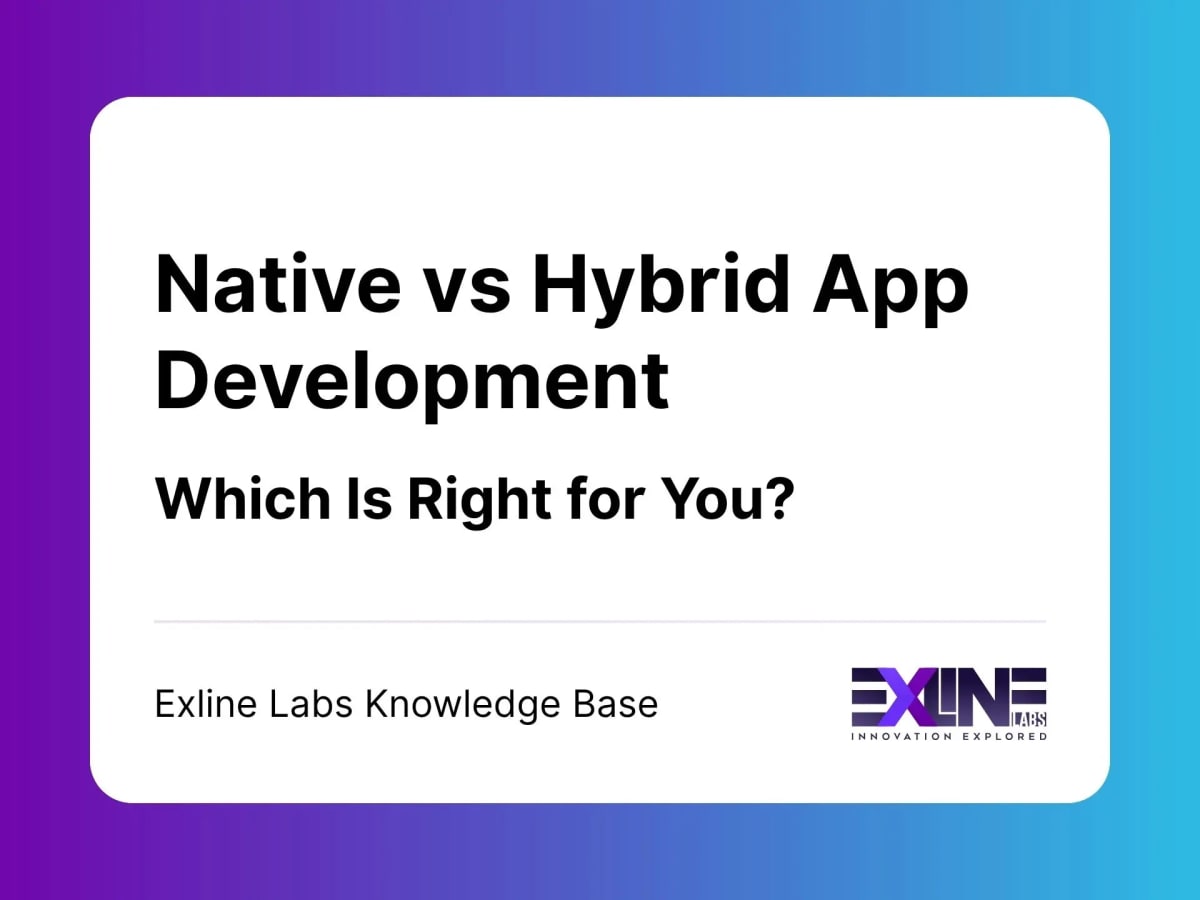Top Mobile App Frameworks for 2026 (React Native, Flutter & More)

Choosing the right mobile app framework is a crucial decision for any startup or digital product team. In 2026, the landscape continues to evolve with more robust cross-platform options and better performance across the board. This article explores the top frameworks used to build iOS and Android apps efficiently, and helps you choose the best one for your needs.
Date Published
20 Nov 2025
Date Updated
21 Nov 2025
Written By
Exline Labs Team
Reading Time
4 min read
Service Type
Mobile applicationsIntroduction
Choosing the right mobile app framework is a crucial decision for any startup or digital product team. In 2026, the landscape continues to evolve with more robust cross-platform options and better performance across the board.
This article explores the top frameworks used to build iOS and Android apps efficiently, and helps you choose the best one for your needs and understanding to pick between Native vs Hybrid development.
1. React Native
Created by: Meta (Facebook)
Type: Cross-platform
Used by: Instagram, UberEats, Pinterest
Why use it:
· Reusable components for iOS and Android
· Large developer community
· Huge ecosystem of plugins
· Easy integration with native code
Ideal for: Startups needing fast, affordable app builds with decent performance.
2. Flutter
Created by: Google
Type: Cross-platform (compiled to native code)
Used by: Google Pay, BMW, Alibaba
Why use it:
· Great for custom UI
· High performance (Dart + Skia engine)
· Hot reload speeds up development
· Growing popularity and enterprise adoption
Ideal for: MVPs that need beautiful UI and fast launch timelines.
3. Kotlin Multiplatform
Created by: JetBrains
Type: Cross-platform (shared logic, native UI)
Used by: Netflix, Philips, VMware
Why use it:
· Shared business logic, native UI
· Great for apps that need platform-specific UX
· Modern, scalable architecture
Ideal for: Companies that want native UI control but shared backend logic.
4. Swift (iOS Native)
Created by: Apple
Type: Native iOS
Used by: Apple ecosystem apps
Why use it:
· Best performance on iOS
· Full access to Apple APIs
· Secure, stable, and fast
Ideal for: iOS-first apps that require precision UI or deep system access.
5. Java/Kotlin (Android Native)
Created by: Google
Type: Native Android
Used by: Most Android apps pre-2020+
Why use it:
· Mature SDK and libraries
· Full control over the Android OS
· Great for hardware-integrated or Android-specific apps
Ideal for: Android-first or hardware-based mobile applications.
6. Ionic
Created by: Ionic Team
Type: Web-based hybrid
Used by: Pacifica, MarketWatch
Why use it:
· Built on web technologies (HTML/CSS/JS)
· Fast for web developers to adopt
· Integrates with Angular, React, or Vue
Ideal for: Web teams transitioning to mobile, simple hybrid apps.
Comparison Table
| Framework | Type | Performance | UI Flexibility | Code Sharing | Ideal For |
| React Native | Cross-platform | Good | Medium | High | Fast MVPs |
| Flutter | Cross-platform | Excellent | High | High | Custom UI |
| Kotlin Multiplatform |
Hybrid | Very Good | High | Medium | Shared logic |
| Swift | Native | Best | High | None | iOS-only apps |
| Java/Kotlin | Native | Best | High | None | Android-only apps |
| Ionic | Hybrid | Moderate | Medium | High | Simple hybrid builds |
How to Choose the Right Framework
Ask yourself:
· Are we building for iOS, Android, or both?
· Do we need native performance (e.g., gaming, AR)?
· Is design flexibility more important than cost?
· Do we have an in-house dev team with existing skills?
Tip: For many founders estimating the cost to build a mobile app in the UK, hybrid frameworks like Flutter or React Native help reduce time-to-market while keeping quality high, and you can always move to native once you scale.
FAQs
Have any Questions?
Can Exline Labs help choose the right framework?
Yes, we match your business goals with the right tech stack for performance, scale, and budget.
What is the best mobile app framework in 2026?
Flutter and React Native remain top choices for startups, offering speed, cost-efficiency, and strong performance.
Is Flutter better than React Native?
Flutter offers better UI customisation and performance; React Native has more plugins and a larger dev community.
Can I use one framework for both Android and iOS?
Yes. Flutter, React Native, and Ionic allow cross-platform development with a single codebase.
What’s the most cost-effective framework?
React Native is often cheaper due to its large community and mature plugin ecosystem.
Which framework gives the best performance?
Native code (Swift, Kotlin) is fastest. Flutter is the best performing cross-platform option.
Are these frameworks suitable for MVPs?
Yes. React Native and Flutter are ideal for MVPs and early-stage products.
Which frameworks are used by large companies?
Flutter (Google Pay), React Native (Meta), Kotlin Multiplatform (VMware), Swift (Apple), and Ionic (Pacifica).
Can I switch frameworks later?
Yes, but it often requires a rebuild. Startups often move from hybrid to native as they scale.
Is Ionic still a good choice in 2026?
For simple apps or web teams building mobile apps, Ionic can still be a valid option.


